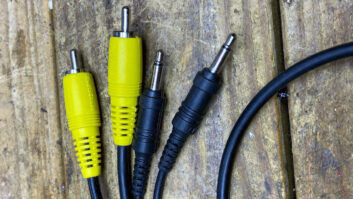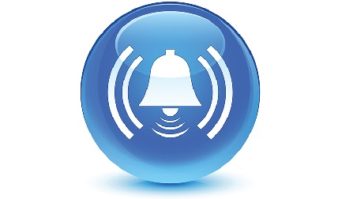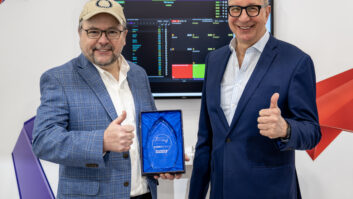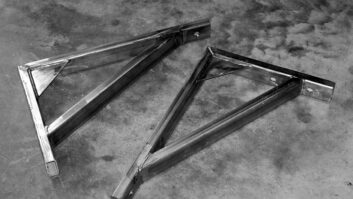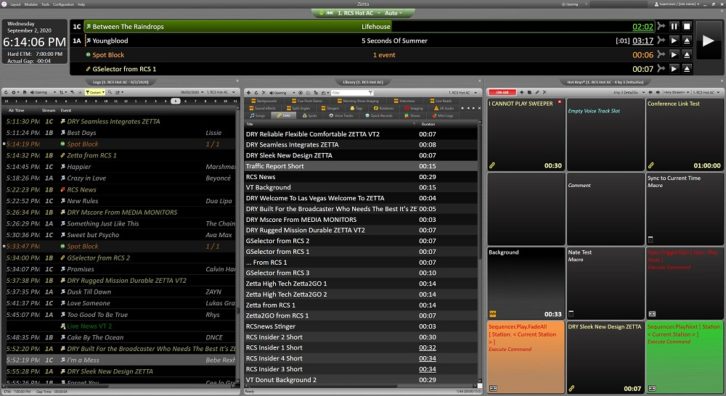
The author of this tech tips commentary is director of sales engineering for RCS.
Zetta is a modern enterprise piece of radio automation software build by RCS, the worldwide leader in radio software, that can ingest mp3, wav and AAC files, convert them to a default audio format, automatically set the trim in, time out and segue points, and nondestructively normalize all audio with pitchless stretch and squeeze.
Needless to say, it’s a very powerful piece of software that can cater to any broadcaster.
So let’s dive into five things you may not have known that you can do in Zetta.
1.) Starting with customizing your Zetta user experience, did you know that users can have their own layouts, color schemes, attributes, and Library folders, and Administrators can control their staff with proper user right restrictions?
Configure Zetta the way you interpret Zetta. Create multiple layouts — one for on-air and another for production.
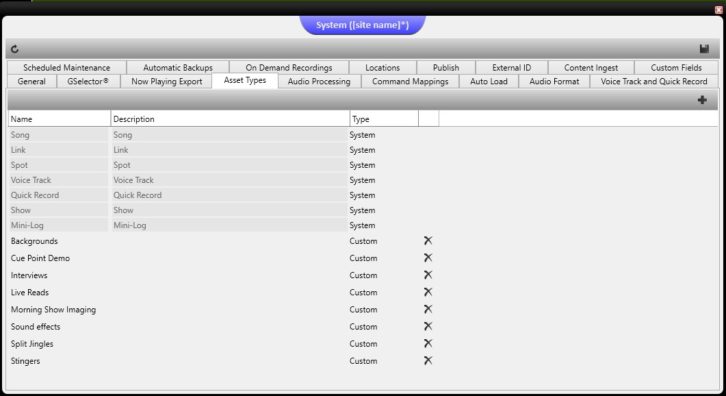
Users can define their own asset types (see above) or folders within the Library:
Configuration | System | Asset Types
as well as their own custom fields, like an “Outcue for Spots”:
Configuration | System | Custom Fields
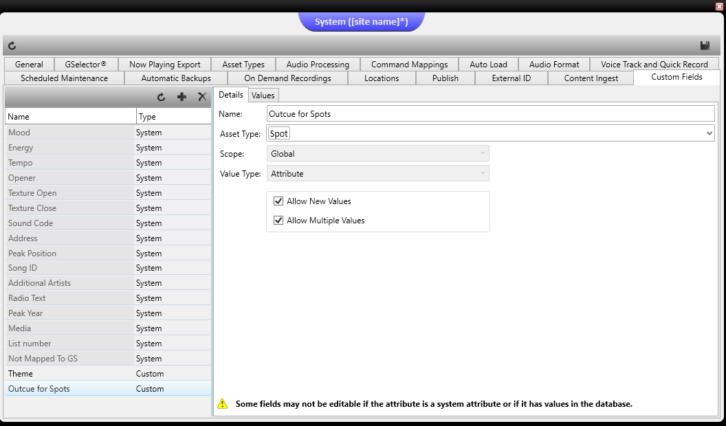
For Administrators, define a user Role and Organization, then assign it to a specific User:
Configuration | Roles, Organization, Users
2.) What about integration? The majority of RCS products can make live, real-time updates within Zetta.
Users can automatically send their Aquira traffic log to Zetta with Aquira Sync, remotely broadcast live with Revma’s Conference App and keep your library and schedules in sync with 100% live GSelector Music Scheduling integration. Maximize your staff’s efficiency by adding audio, metadata and schedule changes — including live reconciliation, which are instantly reflected in GSelector or vice versa.
Users are no longer forced to make a change in automation and then repeat the process for your music scheduler.
3.) Zetta also allows markets to stay connected and share assets with Site Replication or Z-Cast. Simply put, think of Site Replication as a “pull,” in which users can share audio and metadata.
If Market A would like to be in sync with Market B, then we would configure Site Replication. If Market A merely wanted to send Market B certain audio, like spots, then they could utilize Z-Cast, which acts as a “push,” sending Market B Market A’s audio and metadata.
4.) As we continue to develop remote workflows, Zetta is equipped with Zetta2GO. It’s not an app or a download from an app store but a simple URL.
Zetta2GO allows users to continue to control the on-air product, broadcast live, add audio, make changes to the schedule and voice track from any device that has access to the Internet and proper securities, like a VPN.
Is your company limited on studio space? While in the office, quickly access Zetta2GO from any desk or have your production director work from home, importing mass audio files that are instantly available in your Library while your talent is safely broadcasting from the studio. Start with a Location:
Configuration | System | Location
and create a Zetta Auto Import folder:
Configuration | System | Auto Load
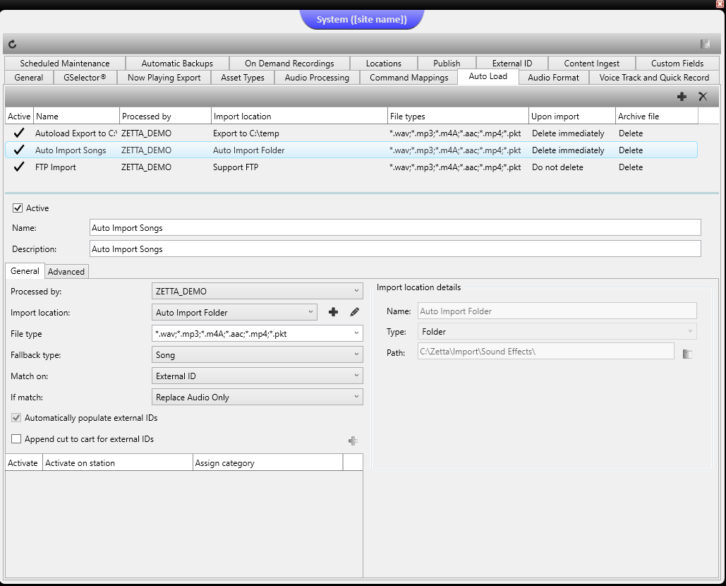
5.) Next, it’s time to talk about the cloud, specifically, Zetta Cloud Based Disaster Recovery.
Available now, create a next level of redundancy by automatically backing up your audio, metadata, schedules and SQL backups directly to the Cloud. Zetta Cloud is not a Virtual Machine, but rather designed using Amazon Web services, following best practices and securities.
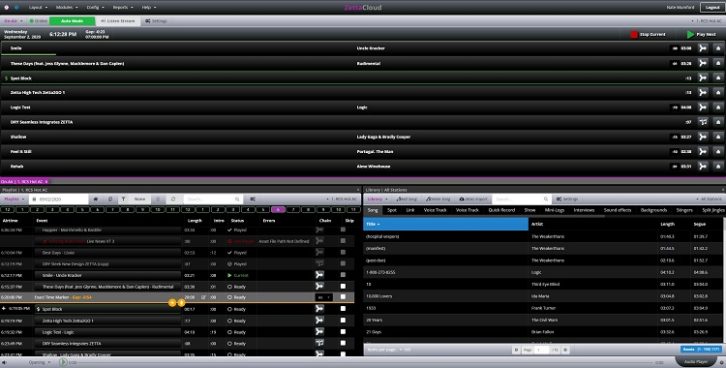
When a disaster strikes — be it a natural disaster like a fire or flood or a malicious cryptoware attack —users can quickly pivot to Zetta Cloud and enable the sequencer from their phone, getting your product back on the air, allowing your staff to properly assess the situation.
Meanwhile, programmers can continue to control the air product, voice track and add new audio. When the disaster has passed, disable Zetta Cloud and return to normal operations.
Shortly, users will also be able to bypass their VPN, voice track from Zetta Cloud Based Disaster Recovery and the asset will properly land in your local Zetta Library.
Between user customizations, integration, market synergy, remote workflows and embracing the future of the Cloud, it’s easy to see why Zetta is a modern, flexible, and powerful piece of radio software.
Radio World welcomes product tips, best practices and other articles to help readers get the most out of their product investments. Email [email protected].
